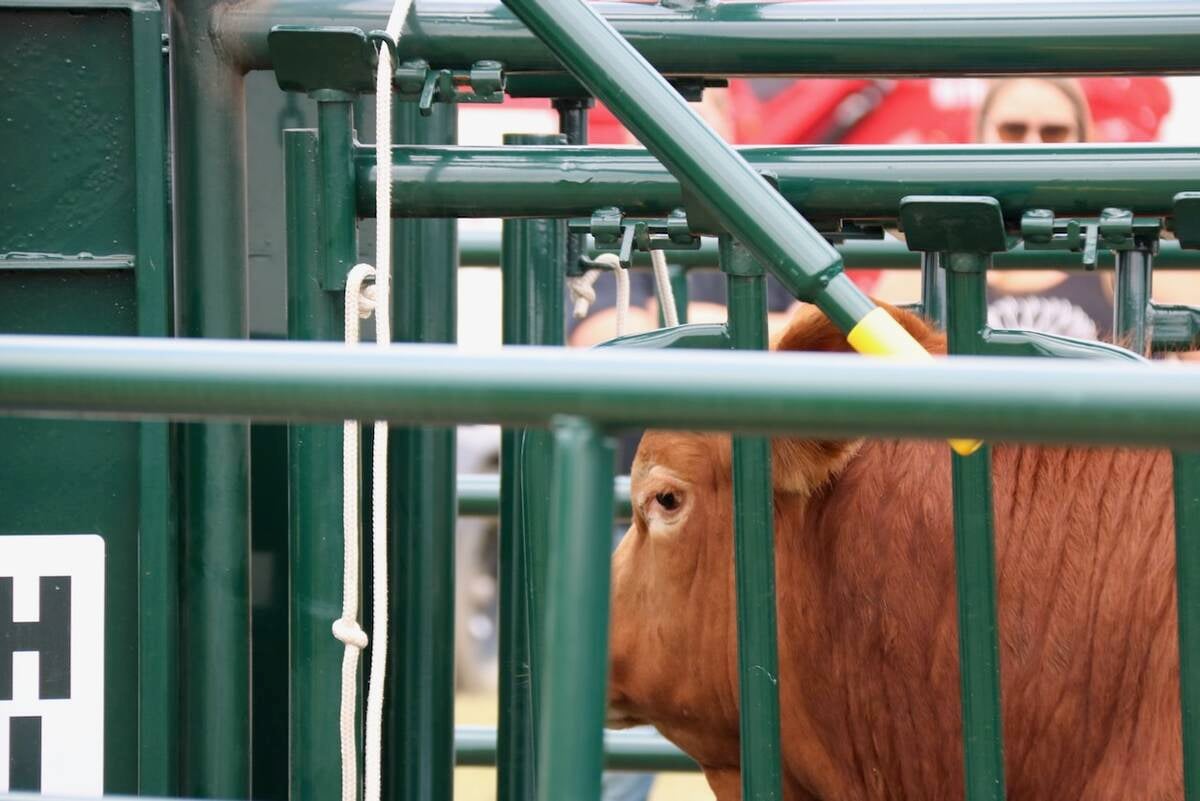Produced from gene sequence | The vaccine doesn’t require growth of the virus so thousands of doses can be produced at once
Canadian hog producers will have access to a vaccine against the deadly porcine epidemic diarrhea virus through permits issued to veterinarians.
Agriculture minister Gerry Ritz and the Canadian Food Inspection Agency announced emergency access to the new vaccine Jan. 30.
Developed in the United States by Harrisvaccines, the iPED+ vaccine has been available only since August in the United States, also only through veterinarian prescription.
Canada’s first cases of PED were found Jan. 22, and the virus had infected five Ontario hog operations as of Feb. 1.
Read Also

Good handling equipment a must on cattle operations
It’s important for the safety of producers and everyone else dealing with their stock that handling equipment is functional and safe.
The virus kills most young piglets, with lower mortality rates in older animals.
Joel Harris, head of sales and marketing for Harrisvaccines, said tests show the vaccine prompts sows to develop antibodies against PED. It is designed for intramuscular injection in sows one to two weeks before farrowing.
“We’re able to produce virus neutralizing antibodies in pigs that we’ve injected the vaccine into, so we’re getting similar antibody titers (concentrations) that you would see in pigs and in gilts that have been exposed to the virus naturally,” said Harris.
The vaccine has been used primarily on pigs in PED outbreak situations and on previously exposed animals.
Harris said the unique vaccine technology does not require growth of the virus, but instead is based upon a sequence of genes from the PED virus that generate an antibody response.
“We know that the vaccine isn’t going to cause the disease because there’s no way it can revert back to virulence.”
He said the process allows his company to produce “tens of thousands” of doses in a single run, so supply is not expected to be an issue.
As a new vaccine, Harris said the length of protection it provides is not yet known.
Dr. Egan Brockhoff of Prairie Swine Health Services in Red Deer told producers last week that vaccination will not prevent PED infection but could reduce its impact or the chances that it will become endemic.
Brockhoff said it’s also possible that the vaccine could hinder early identification of PED, and he warned producers to be aware of that. Biosecurity remains the primary weapon against prevention, he added.
Harris said his father, Hank Harris, a veterinarian and prominent swine researcher, considered possibilities for a PED vaccine about two years ago, when the virus was a problem in Asia but had not yet moved to the U.S.
PED is a coronavirus similar to the one that caused severe acute respiratory syndrome (SARS) in people in 2004. A North Carolina-based company, Alphavax, developed a SARS treatment, and Harrisvaccines used some it that technology to develop the PED vaccine.
“It gave us kind of a head start,” said Joel Harris.
“It was a fairly quick turn around as far as vaccine development goes.”
Alphavac licensed its technology exclusively to Harrisvaccines for veterinary applications.
The latter company is based in Ames, Iowa.















